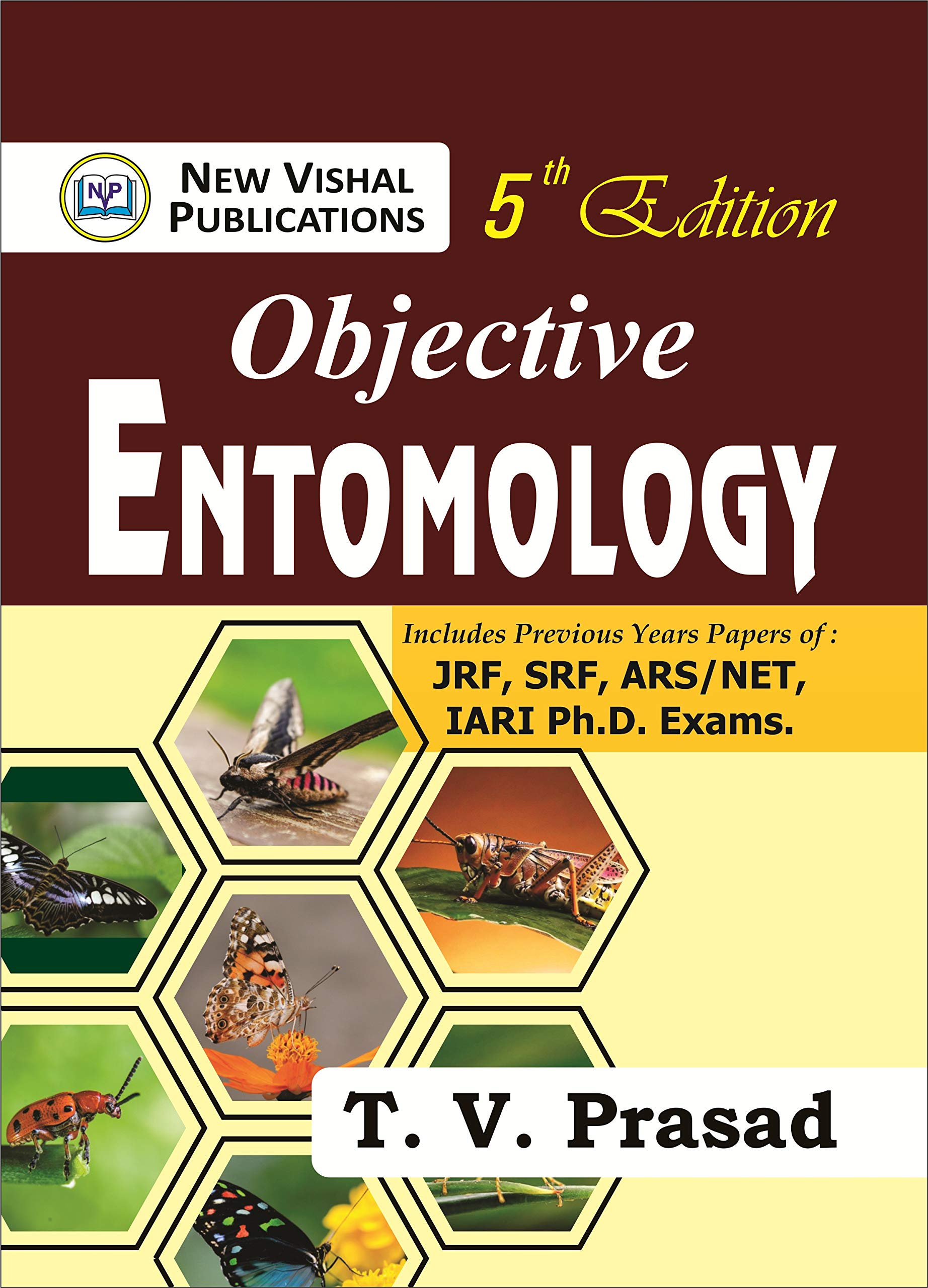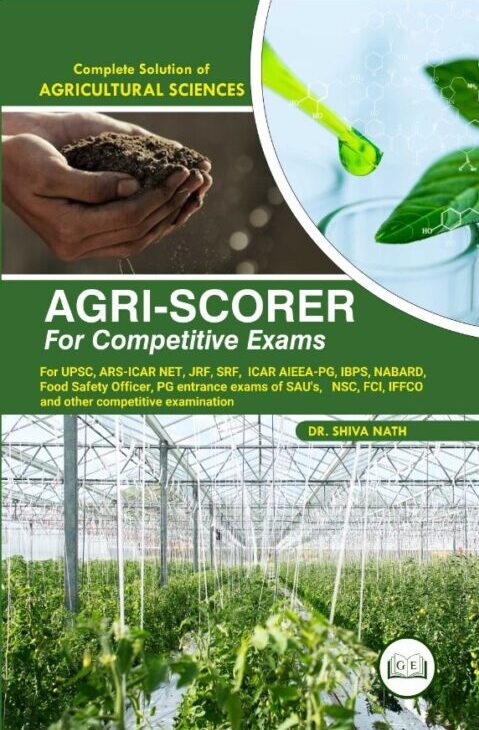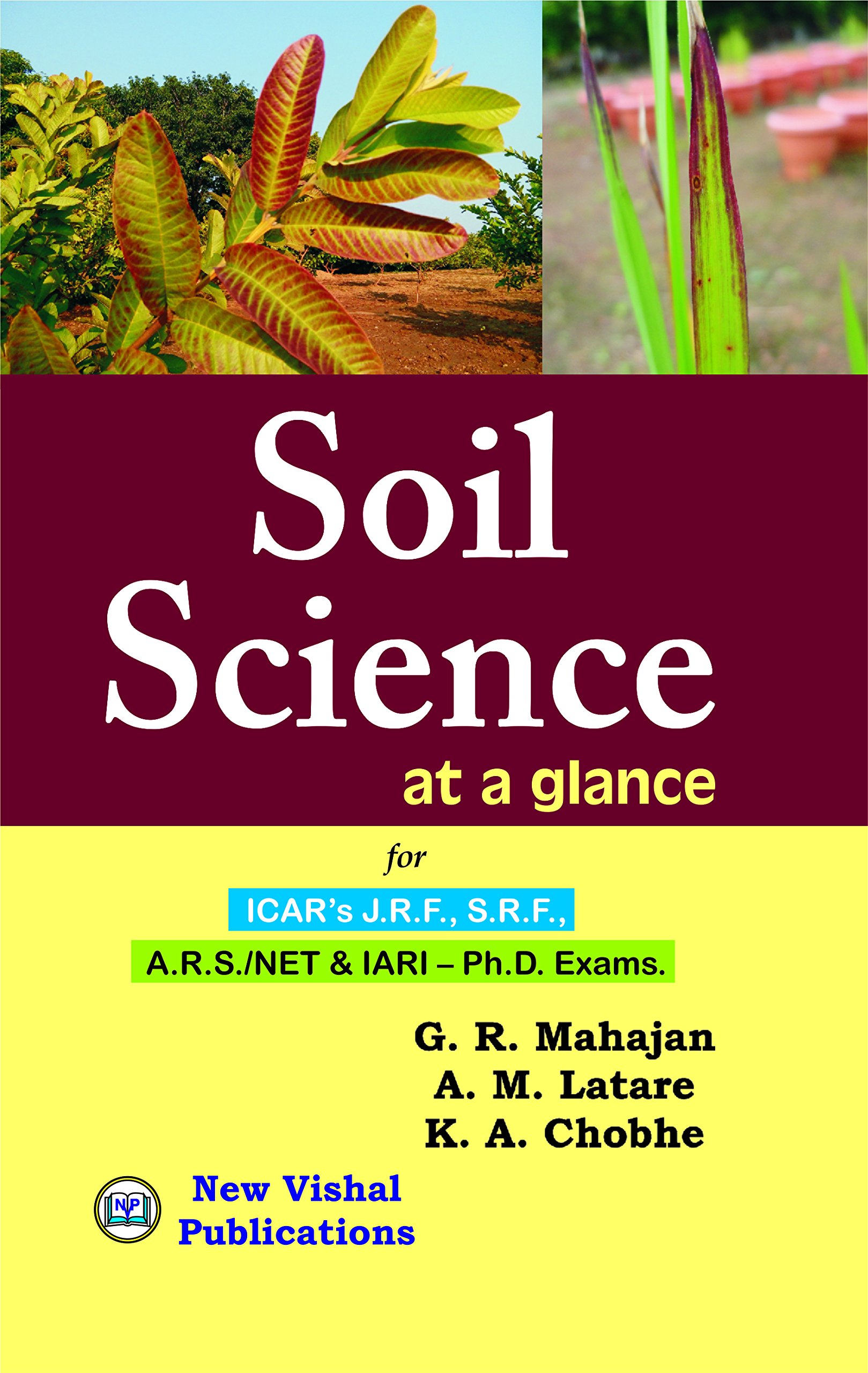“Soil Science at a glance” has been added to your cart. View cart
Add to Wishlist
-8%
Principles of Agricultural Engineering Vol- 2
Publisher: Jain Brothers
₹895.00 Original price was: ₹895.00.₹825.00Current price is: ₹825.00.
The book covers topics on: Surveying, Irrigation, Drainage, Soil and Water Conservation.
Usually dispatched in 2 to 3 days
Safe and Secure Payment Gateway
Category:
Agriculture
Tag:
Exclusive
The book covers topics on: Surveying, Irrigation, Drainage, Soil and Water Conservation.
Book information
ISBN 13
978-8183601849
Format
Hardbound
Language
English
Related products
-11%
Objective Entomology
By T.V. Prasad
Year of Publication 2
-11%
Objective Entomology
By T.V. Prasad
-12%
General Agriculture
This book covers comprehensively the content of all syllabus of general agriculture for M.Sc. and Ph.D. enterance examinations of Agriculture Universities. It is competitive book for I.C.A.R , J.R.F , Ph.D , S.R.F and A.R.S examination with more than 3800 questions solved. It provides the students with the wide range of contents, frequently asked questions in question and answer form rather than M.C.Q so that the students can have a better understanding of the questions with various terms definied at the end of this book.Along with this it also contains selected questions of previous year question paper of all those competitive exams mentioned above.
-12%
General Agriculture
This book covers comprehensively the content of all syllabus of general agriculture for M.Sc. and Ph.D. enterance examinations of Agriculture Universities. It is competitive book for I.C.A.R , J.R.F , Ph.D , S.R.F and A.R.S examination with more than 3800 questions solved. It provides the students with the wide range of contents, frequently asked questions in question and answer form rather than M.C.Q so that the students can have a better understanding of the questions with various terms definied at the end of this book.Along with this it also contains selected questions of previous year question paper of all those competitive exams mentioned above.
-15%
AGRI-SCORER FOR COMPETITIVE EXAMS
By Shiva Nath
This book comprises 17 chapters namely agricultural meteorology, agronomy, soil science and agricultural chemistry, genetics and plant breeding, agricultural biochemistry, agricultural biotechnology, fruit science, vegetable science, agro-forestry and forestry, plant physiology, agricultural microbiology, environmental sciences, plant pathology, agricultural entomology, agricultural economics, agricultural extension, animal husbandry and dairy sciences. Multiple choice questions given at each chapters are extremely valuable for preparation of competitive exams like Union and State Public Service Commissions, Agricultural Research Services – National Eligibility Test (ARS – NET), JRF, SRF, ICAR NET , ARS,NTA ICAR AIEEA-PG Institute of Banking Personnel Services (IBPS), NABARD, Food Safety Officer, PG entrance exams of State Agricultural Universities (SAU’s), All India Entrance Examinations for UG and PG admissions to agriculture, National Seeds Corporations (NSC), Food Corporation of India (FCI), Central Warehousing Corporation (CWC), Indian Farmers Fertilizer Cooperative Limited (IFFCO) and other competitive examination related to the subject.
-15%
AGRI-SCORER FOR COMPETITIVE EXAMS
By Shiva Nath
This book comprises 17 chapters namely agricultural meteorology, agronomy, soil science and agricultural chemistry, genetics and plant breeding, agricultural biochemistry, agricultural biotechnology, fruit science, vegetable science, agro-forestry and forestry, plant physiology, agricultural microbiology, environmental sciences, plant pathology, agricultural entomology, agricultural economics, agricultural extension, animal husbandry and dairy sciences. Multiple choice questions given at each chapters are extremely valuable for preparation of competitive exams like Union and State Public Service Commissions, Agricultural Research Services – National Eligibility Test (ARS – NET), JRF, SRF, ICAR NET , ARS,NTA ICAR AIEEA-PG Institute of Banking Personnel Services (IBPS), NABARD, Food Safety Officer, PG entrance exams of State Agricultural Universities (SAU’s), All India Entrance Examinations for UG and PG admissions to agriculture, National Seeds Corporations (NSC), Food Corporation of India (FCI), Central Warehousing Corporation (CWC), Indian Farmers Fertilizer Cooperative Limited (IFFCO) and other competitive examination related to the subject.








